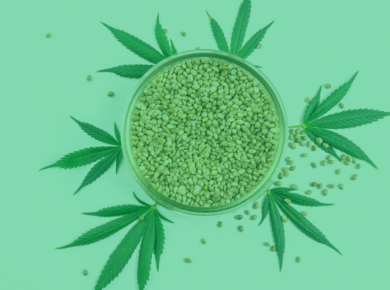What Happened in Idaho?
On January 24, 2019, Idaho State Police intercepted nearly 7,000 pounds of legally grown industrial hemp en route to Colorado from Oregon.
The truck was loaded down with 31 bags, with the bill of lading stating that the plant matter was industrial hemp, but after performing a roadside test with a Narcotic Identification Kit and bringing in a canine unit, which gave a positive result for THC on the load, the driver now faces felony trafficking charges.

Though the 2018 Farm Bill legalized industrial hemp and placed it under the purview of the U.S. Department of Agriculture (USDA), the agency has not yet promulgated regulations, meaning that there’s not yet any legal framework for transporting hemp, and under Idaho state law, hemp is still classified as cannabis.
What Does it Mean Moving Forward?
So despite the future looking bright for industrial hemp growers and processors, the reality, in the short term, is that hemp remains a highly restricted crop.

For hemp to be legal under the 2018 Farm Bill it must be produced in a state that either has a hemp plan that has been approved by the USDA or they must follow a federal plan. The problem, of course, is that the USDA has not yet issued a federal plan or approved of any individual state production plans.
“The clause in the 2014 Farm Bill that allows for industrial hemp to be grown under certain agricultural pilot programs that are run by state departments of agriculture remains in effect until the USDA issues regulations,” says Alex Berger, an Oregon based attorney with the Emerge Law Group. Under the 2014 Farm Bill, hemp remains a Schedule I controlled substance.
“Transporting biomass and transporting hemp finished products is really an issue that is top of mind for a lot of hemp space participants who thought that the 2018 Farm Bill was a very bright green light,” says Seth Goldberg, team lead for the Duane Morris cannabis industry group. “Now they’re understanding that there’s still work to be done from the federal regulatory standpoint and with state regulations.”
So Should You Transport Hemp Across State Lines?
In the meantime, according to Berger, the best practice for transporting hemp is to keep it within your state. When that’s not possible, it’s important to research your route and know the laws of each state you pass through.

“They should probably get a lawyer and that they should probably determine which states outright prohibit industrial hemp,” Berger says. “There are some states that still don’t differentiate between industrial hemp and marijuana and have very strict marijuana rules and laws. So you don’t want to go through those states. You do not want to go through Idaho.”
Big Sky Scientific LLC, the company which was shipping the product to Colorado, has filed a lawsuit in return. They want their product returned and an admission of wrongdoing from the Idaho police.
“What the Idaho case demonstrates is that absent regulation from the USDA implementing the 2018 Farm Bill, there is still uncertainty in how freely hemp products can be transported throughout the United States,” Goldberg says.
“The 2018 Farm Bill seems to have been a green light, but the light still yellow.”




